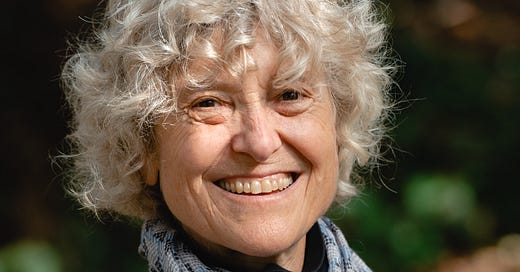Law schools adapt to post-Roe world
Liberal law professors teach in different ways than they did when Roe was law of the land
(UC-Berkeley Law Professor Kathryn Abrams)
Law professors taught abortion precedent to their students in much the same way for the last 50 years. When a new case came, the teacher explained the new reasoning that the students would have to memorize and explain themselves. It all circled back to Roe v. Wade, though.
With that decision overturned, law schools have had to adjust how and what they teach students. At the University of California at Berkeley, the administrators recently announced that they would offer a course, Organizing for Reproductive Rights and Justice, taught by Professor Kathryn Abrams.
“What needs to be taught is really different,” Abrams said over the phone. “And one of the ways in which I think law schools need to adjust but haven't quite adjusted is that we're pouring an infinite amount of resources into understanding The Dobbs decision itself.”
“The question is, ‘Where do reproductive rights get regulated by law?’ The answer isn't the Supreme Court anymore.”
Abrams’ course will focus on how coalitions are being constructed and how those not previously politically active are being engaged to craft and support ballot issues, support state judicial candidates, address restrictive state legislation, and address funding, disparities in reproductive health, and maternal/infant outcomes, and birthing choices.
Classes will include presentations by organizers, legal professionals, and scholars involved in these issues in several state contexts.
Studying patterns of restrictive laws at the state level would also be worth teaching, Abrams said. That means noting the time limits, whether the laws target women or providers or people who aid and abet, or whether it’s enforced through civil or criminal mechanisms.
“Those are the different things you have to know about it,” Abrams said.
As those in the movement know, new methods of securing abortion rights have emerged. We can still get them through the courtroom, but much of that depends on state supreme court makeup. Studying how those judges are elected or appointed matters. The other method is ballot initiatives. Understanding the rules surrounding them in whatever state they’re being pursued is imperative.
Abrams thinks feminists and law schools should embrace reproductive justice. That means going beyond the belief that we must preserve the right to legal abortion. There must be government and societal support for women and people who choose to have children.
“Maybe we want to rebuild Roe better,” Abrams said. “And if we're rebuilding Roe better, we need to think about how abortion rights are secured for all the different populations.”




